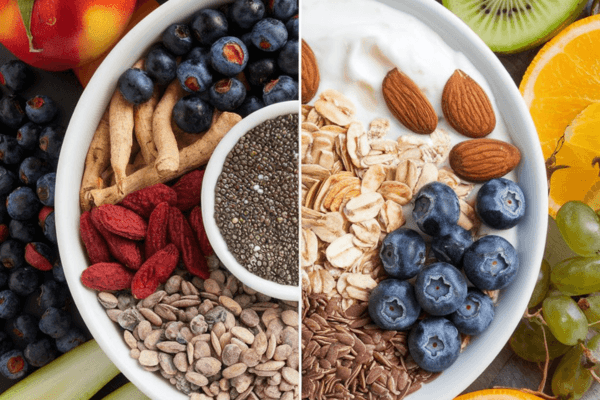Saffron (Crocus sativus L.) is an aromatic and traditional spice which dates back to ancient history. Though some say saffron originated from the Middle East, few others suggest it has originated from Central Asia or South-West Greece. Saffron is predominantly used in the Mediterranean basin. The production of just 1kg of saffron needs 150,000-200,000 flowers and 400 hours of hard work. This may probably be why saffron is an expensive spice.
Saffron is derived from the flower saffron crocus. The flowers are a beautiful purple colour with a 3 branch style (economic part of the flower). These threads called saffron are a bright crimson/red/orange in colour and are delicate in nature. Mucilage, fats and minerals are also constituents of saffron.
Uses of saffron
Saffron has multiple applications for health, beauty and hygiene.
1. Culinary application – Primarily, saffron is used for cooking. It is used as a condiment in rice as well as a colouring/flavouring agent in desserts, soups, rice-based dishes, risotto, chalow kabab etc.
2. Colouring agent – Since artificial dyes have potent health impacts, saffron is used as an alternative food dye in the agro-food industry. This is caused by the crocin pigment found in saffron.
3. Beauty and cosmetic industry – Saffron is used to make essential oils and cosmetics. The Aristophanes had described saffron to have a sensual smell. It is said that Cleopatra also used beauty products which contained saffron. In ancient times, saffron was mixed with donkey milk as a beauty remedy. Saffron can treat acne, and wounds and for UV protection.
Pigments and phytochemicals present in saffron
Pigments and phytochemicals present in saffron are:
- Trepan – Saffron is odourless due to the presence of the pigment.
- Crocin and crocetin – Carotenoid pigments responsible for the crimson colour of saffron flower.
- Picrocin – Gives saffron its bitter taste.
- Picrocrozioide – It is responsible for the soluble nature of saffron in water.
- Safranal – A volatile compound with a pleasant aroma.
Health benefits of saffron
A Persian physician – “Avicenna” has described the health promoting properties of saffron as early as the 10th century. These benefits have also been studied and documented. The beneficial effects of saffron are:
| Health benefit | Mode of action |
| Anti-depressant | Saffron can alter the brain chemicals (hormones) by acting as an anti-depressant agent. Serotonin or 5-hydroxytryptamine is a happy hormone synthesised by tryptophan |
| Treats sexual dysfunction | Saffron is said to be a sexual stimulant. In women, it acts as an antagonist against fluoxetine-induced sexual disorders such as pain, lubrication and excitement. In men, saffron can improve sexual function and erection. |
| Neuro-degenerative diseases | Carotenoids like crocin and crocetin are natural anti-oxidants. Diets rich in anti-oxidant properties can reduce oxidative stress. Any form of oxidative stress can harm the brain. It can prevent neurodegenerative diseases like Alzheimer’s disease. |
| Anti-carcinogenic | Cancer is the major cause of death worldwide. Saffron contains carotenoids which exhibit anti-tumour and anti-carcinogenic properties. It does so by not destroying the body’s healthy cells. However, the effect of saffron on malignant cells was dependent on the dose used. |
| Digestive Health | Saffron improves the function of the digestive system and genital system. It can: Stimulate the stomachReduce appetiteTreat haemorrhoidsTreat anus prolapseReduce intestinal fermentationNormalise gastric volume and pHReduce gastric ulcers |
| Menstrual health | Saffron can help in treating amenorrhoea (absence of menstruation) by stimulating menstruation. |
| Reduces cholesterol levels | Crocetin which is present in saffron can lower cholesterol levels and the risk of atherosclerosis. Crocin can decrease the absorption of fat and cholesterol by blocking pancreatic lipase. |
| Helps in weight management | Many individuals are habituated to snacking usually due to stress. This can predispose one to gaining weight. Due to saffron’s ability to block fat absorption, it can increase satiety. Crocin in saffron can also alter the rate of weight gain and fat deposition. |
| Type 2 Diabetes Mellitus | Animal studies reveal that saffron can prevent/reduce insulin resistance due to lower oxidative stress and normal adiponectin levels. |
| Eye Health | In ancient times, saffron was needed to prepare kohl. Which was used to protect the eyes from the sun, wind etc. Saffron extracts can be used to reduce the risk of eye diseases like cataracts, photoreceptor death, degradation of the retina etc. Saffron can improve blood circulation and retinal function. |
Ways to include saffron in the diet
Here are some tips to include saffron in your diet:
- Steep a few strands of saffron in water and enjoy as saffron tea.
- Saffron can be added to desserts for colour and flavour.
- Add saffron to marinades.
- Saffron can be had as a bedtime drink by heating few strands in milk.
- Adding saffron to rice dishes can give it a punchy taste.
However, always remember to gradually include saffron in the diet to avoid toxicity symptoms.
Can saffron cause toxicity?
Though saffron is a valuable spice, it must be used in moderation. The safe dose of saffron is 1.6-6g/day. Consuming >5g or >20g of saffron/day can lead to symptoms such as:
- Dizziness
- Nausea
- Vomiting
- Diarrhoea
- Numbness
- Tingling of hands and feet
- Yellowish skin and eyes
- Sudden bleeding
Always speak to a healthcare provider to understand the safety and recommended dose for consumption of saffron especially if you are pregnant or breastfeeding. Consuming >5g of saffron can induce contractions.
Mayuri,
Dietetic Researcher, Simplyweight













